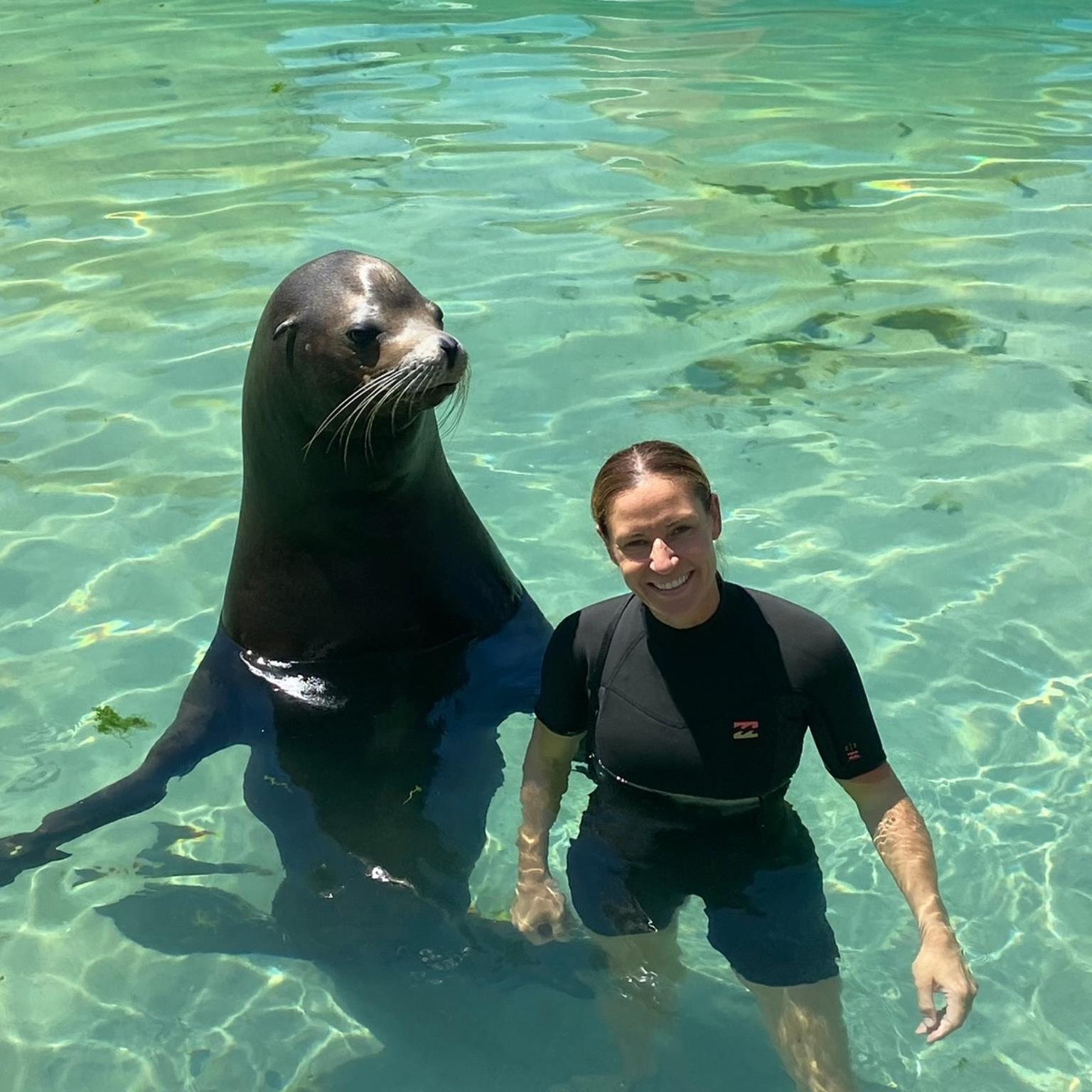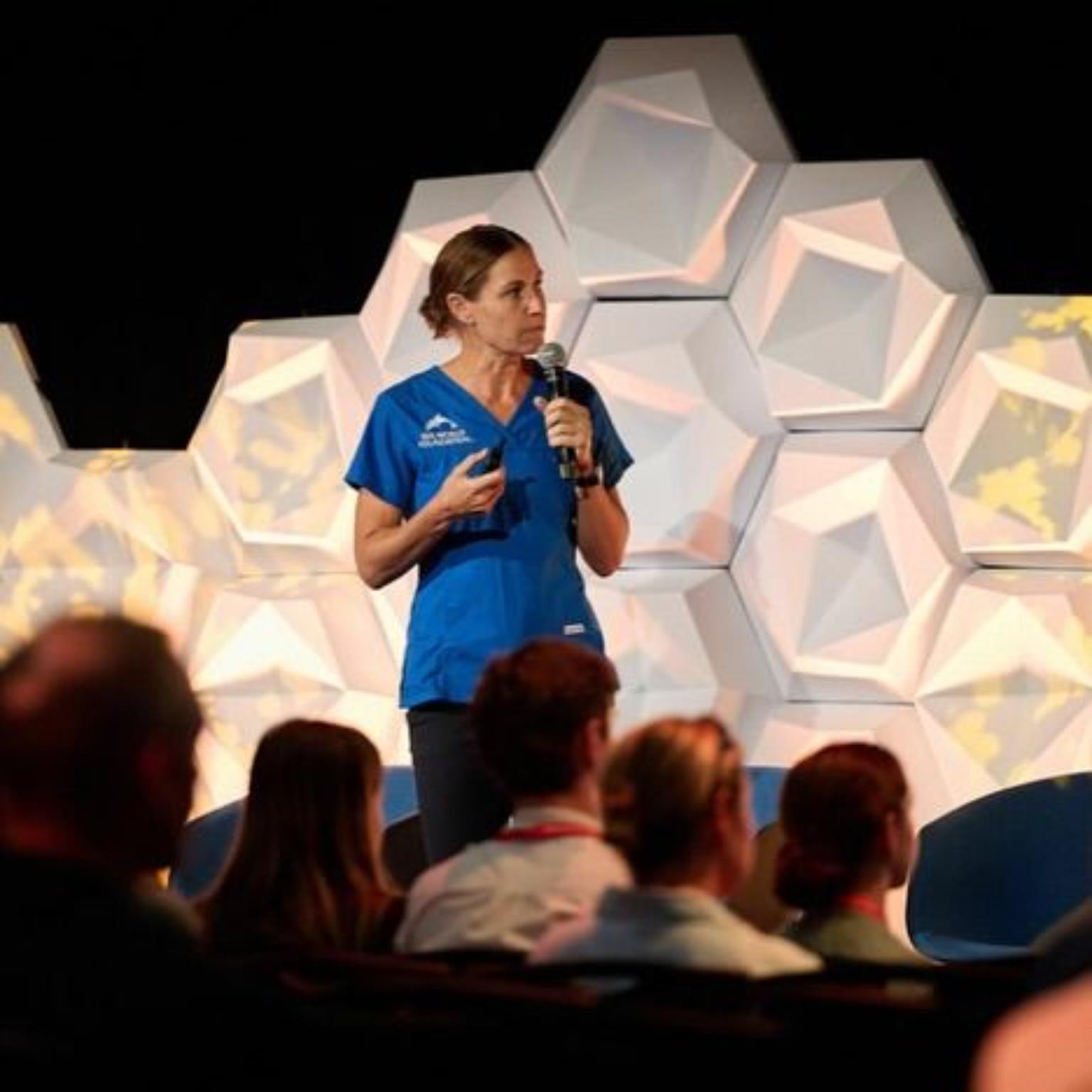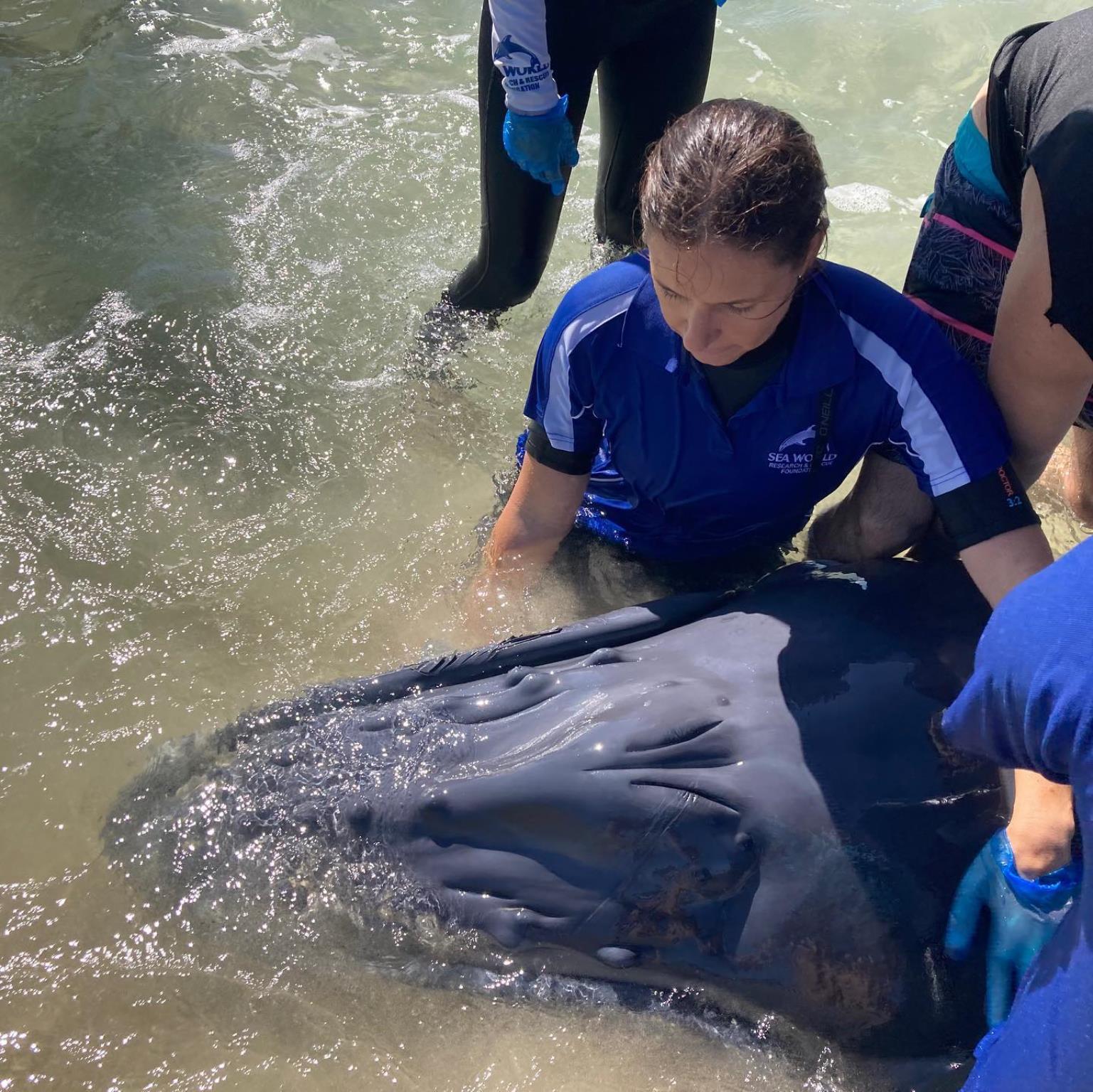
Dr. Claire Madden, head veterinarian at Sea World & Paradise Country, addresses the daily challenges of marine conservation, highlighting the impact of human actions on the oceans. Among the biggest problems faced are marine debris, such as discarded plastics and fishing equipment, which severely affect species like turtles, dolphins, and whales. Madden emphasizes the importance of education and rescue initiatives, as well as conservation projects to mitigate the effects of pollution and overfishing on marine ecosystems.
What are the biggest challenges you face at Sea World & Paradise Country regarding marine wildlife conservation, considering the impacts of human actions?
Outside of natural species disease and poor health, marine debris (such as fishing equipment, plastics and discarded waste) are one of the biggest challenges marine animals are facing currently. At Sea World, we see many seabirds and marine turtles coming into our care because of fishing line entanglement and ingestion. In addition to this we see larger marine mammals such as dolphins and whales becoming entangled and entrapped in commercial fishing equipment. Outside of marine debris, we also see human/animal interactions increasing, such as boat strike wounds for turtles, dolphins and dugongs.
In your opinion, what are the main human factors currently contributing to the degradation of marine ecosystems?
As above, the main human factors are marine debris impacting the marine environment. With the human population growing and more people having greater access to marine environments unfortunately we are also going to see an increase in negative human/animal interactions.

How does pollution, especially the disposal of plastics and other waste, affect the health of the marine animals you work with daily?
Last year we conducted over 400 individual marine animal rescues, with many these were due to marine debris. Unfortunately, far too commonly, we are required to rescue marine animals who are impacted by marine debris, whether that be turtles ingesting plastics, seabirds entangled in discarded fishing line or humpback whales becoming entrapped in fishing equipment on their annual migrations. While we do our best to rehabilitate and return in most cases, sadly some animals will succumb to the impacts caused by the marine debris.
Overfishing and the destruction of natural habitats have direct consequences on marine life. How do these activities impact ocean biodiversity?
We need to ensure our marine environments remain healthy and can sustain the many wonderful creatures who reside within them. Loss of habitat is a cause for concern for several reasons, for example, we have seen first-hand the impacts that coral bleaching due to climate change is having on our reef systems with loss of species. Overfishing leads to an imbalance in the marine environment and can severely alter marine eco-systems leaving some species starving and at risk of extinction.

In terms of conservation, what initiatives or projects is Sea World & Paradise Country leading to combat the negative effects of human actions on the oceans?
At Sea World and Paradise Country, as members of the zoo and aquarium industry, we play an integral role in animal conservation, threatened species recovery and breeding programs. Through the Sea World Foundation, we work through three main pillars to assist our marine environments:
Rescue: We have an experienced and dedicated team who are on-call year-round to assist when an animal requires assistance. Our team conduct rescue operations on many marine animals and you can see some of the recent rescue operations here: https://seaworld.com.au/foundation/rescue
Research: We work closely with zoological facilities, government agencies, universities and like-minded organisations to enact change that will benefit the marine environment. Through these partnerships we conduct and support research projects into marine wildlife, wildlife health, ecology and disease. Some recent research trips we participate in include:
- Annual Dugong Health Assessments with the University of Queensland.
- Humpback Whale Studies with Griffith University.
- Grey Nurse Research with Queensland Government.
- Golden Kelp research with University of Sunshine Coast.
Conservation: We conduct conservation activities such as our annual Ocean Clean Up at the Gold Coast Seaway where this year 279 land and dive volunteers removing almost 250kgs of marine debris from the area.
More information on these activities can be found here: https://seaworld.com.au/foundation
Could you share a specific case of a rescue or rehabilitation of an animal that has been severely affected by pollution or other human intervention?
We have had many cases where we have been involved in animal rescues as a result of marine debris but one that stands out was from last year, where we assisted a bottlenose dolphin who was heavily entangled in fishing line in the Moreton Bay region. This was one of the largest rescue operations in recent history and thankfully had a happy ending. The young dolphin was reported by the local community with a large fishing line entanglement to its dorsal fin and tail fluke and in conjunction with Queensland Parks and Wildlife team, the rescue operation involving 27 specialised staff and seven vessels was mounted to save the dolphin. Our team managed to remove the entanglement from the dorsal fin and tail fluke on-site, but closer inspection identified severe damage and we consulted with international experts to bring the dolphin back to Sea World and conduct the surgery to remove a section of dorsal fin to minimise the risk of re-entanglement in the future. Following a rehabilitation stint, the dolphin was successfully returned to the Moreton Bay region just over a month after the initial rescue. Without intervention, this dolphin would have succumbed to the entanglement and died a slow, painful death and we are encouraging people to be more responsible in the ways they engage with the environment – discard of fishing gear correctly, never feed wildlife including dolphins and to Go Slow for those Below. Encouragingly due to the clearly identifiable dorsal fin, on recent research trips to Moreton Bay, we have seen the dolphin.

How can environmental education play a role in reducing human impacts on the oceans and wildlife, and what does Sea World do to promote this awareness?
Education plays a vital role in reducing human impacts to the marine environment. And through conservation and education efforts, Sea World and the Sea World Foundation are creating greater public awareness of marine issues and through increased scientific knowledge helping better understand how we can preserve the marine environment and co-exist with the wondrous wildlife that call it home.
At Sea World we have recently partnered with Containers for Change and have included messaging and signage in our Seal Guardians presentation to educate our guests on not only the importance of reducing, reusing and recycling, but on real life changes they can enact in their lives to assist marine environments.
Looking to the future, what immediate actions do you believe should be taken, both by governments and individuals, to better protect marine ecosystems and their species?
As mentioned throughout one of the biggest issues currently is marine debris, and we are encouraging all levels of government and individuals to do their part to help reduce these impacts. It is wonderful to see the community becoming so passionate about marine conservation and there are so many things people can do in their everyday lives, as simple as Taking 3 for the Sea when they go on a walk by picking up rubbish. There are also a host on many wonderful citizen science projects which they can participate in to continue their efforts.
Follow Dr. Claire Madden on Instagram

